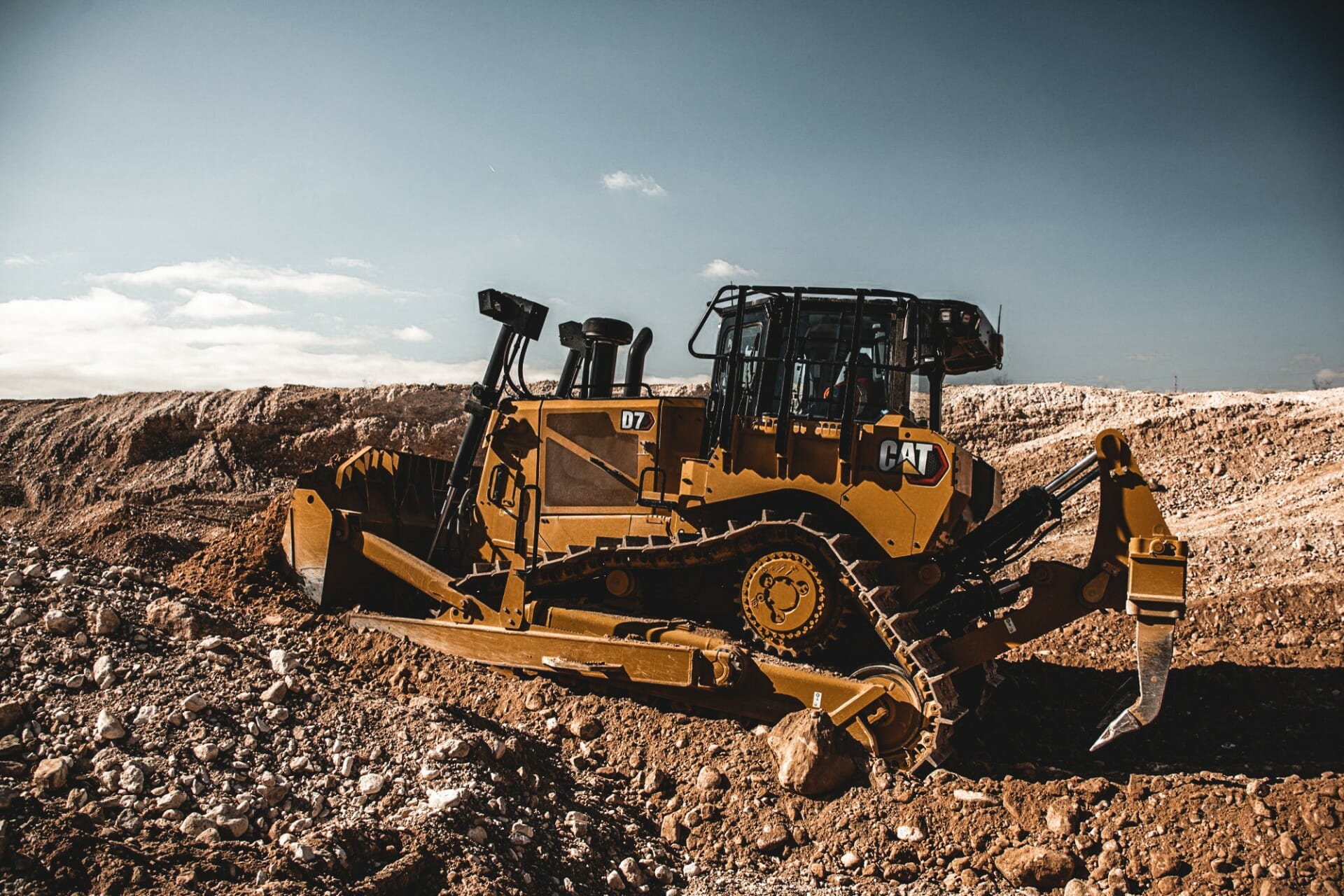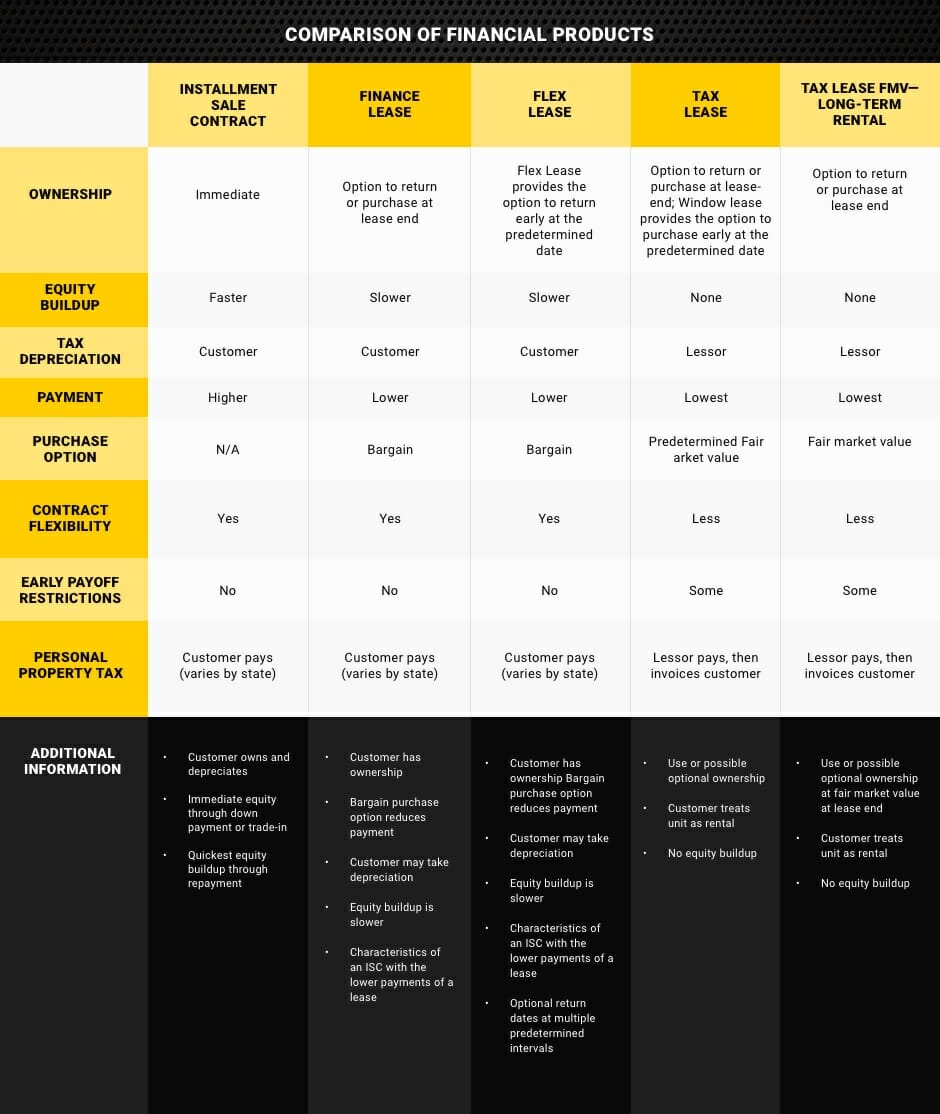
Published on July 23, 2020
Should I Buy or Lease?
The decision whether to buy or lease equipment can be frustrating for business owners because there are pros and cons for both. In this article, our professionals at Ziegler CAT will walk you through the ups and downs of owning versus leasing taking into account issues related to short- and long-term maintenance, tax structure, advanced technological requirements, and your overall work flow.
Leasing Advantages and Disadvantages
Technology plays an important role in the efficiency and productivity of heavy equipment, and leasing allows business owners to use equipment that offers the most current and cost-effective technological solutions. Leasing also will save you money on the cost of installing temporary fixes for outdated machinery, which can add-up over time.
Leasing equipment is also a good solution for managing your budget. Whether on an annual or monthly basis, you have a pre-defined expense that helps you control cost. Leasing can also reduce the up-front costs incurred when you purchase a piece of equipment out right.
Leasing also has some limitations you might want to consider.
- You save money up front, but you also have interest payments to consider
- You will not build equity in your equipment when leasing
- Leased equipment is tax deductible, but you do not retain the asset
Considerations before you sign a lease should include
- The length of the lease term versus your anticipated need for the specific equipment
- The maintenance contract and how it defines your level of accountability versus the owner’s
- The degree of flexibility within the lease should your needs change
Purchasing Advantages and Disadvantages
When you purchase equipment, you are taking full control of your inventory. You own it, so you are in charge of its care and how and when it is used. You also have the ability to sell the equipment if your needs shift, recovering some of the purchase cost which can be reallocated as you see fit.
If your need for a diverse inventory is limited and you are targeting a very specific customer and scope of work, then purchasing may be a better option for you, particularly if you have invested in qualified operators. Like great employees, well-maintained equipment will perform and produce for years to come. And keep in mind, no matter how well you maintain your equipment, its value will depreciate, but that has its advantages as well when tax time rolls around.
Downside considerations when it comes to ownership include
- The higher up-front costs you will have to absorb on the front end of the purchase
- The possibility of the equipment becoming outdated and less effective which hurts resale
- The potential limitations of expanding your work scope due to limited capabilities with your existing inventory
Whether buying or leasing, make sure that you perform your due diligence to ensure that your decision is in line with your budget and project needs. In some instances, it may be useful to consider pursuing both options at the same time. At Ziegler CAT, we can assist you in making the smart decision for you and your business. Reach out to your local Ziegler branch to learn more today.
For more information about the financing and leasing options available to you at Ziegler, take a look at the chart below.

Posted In: Construction

